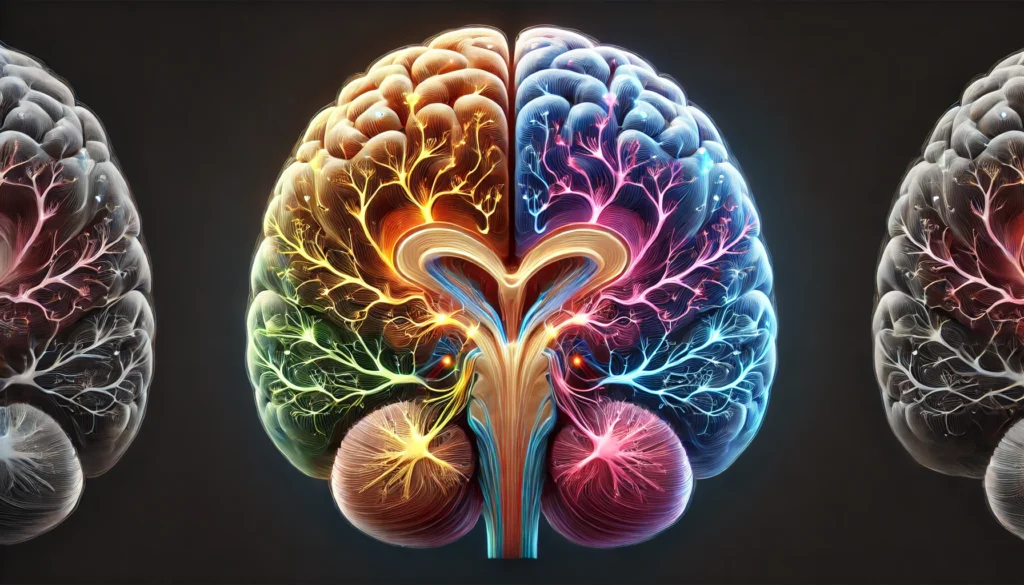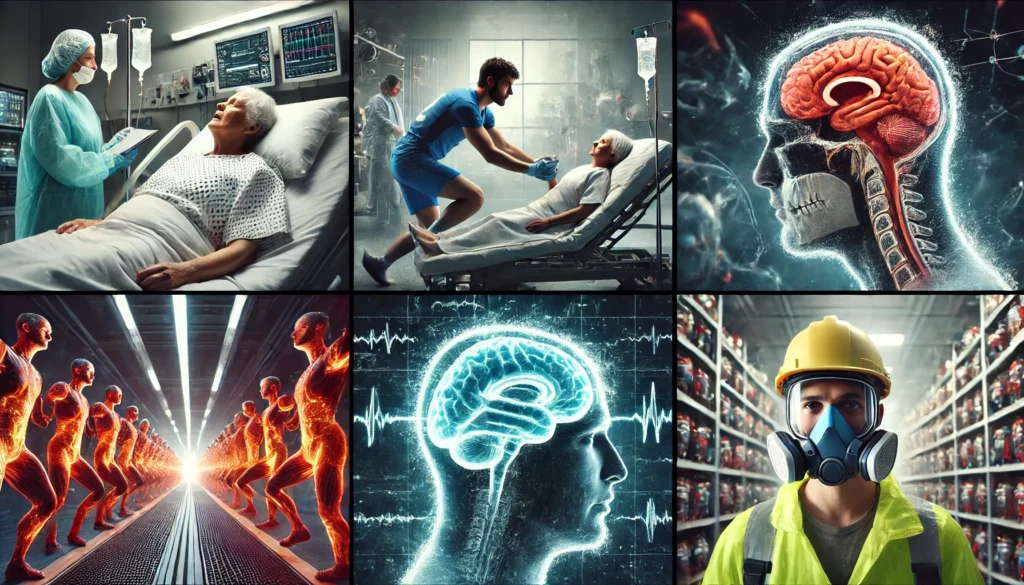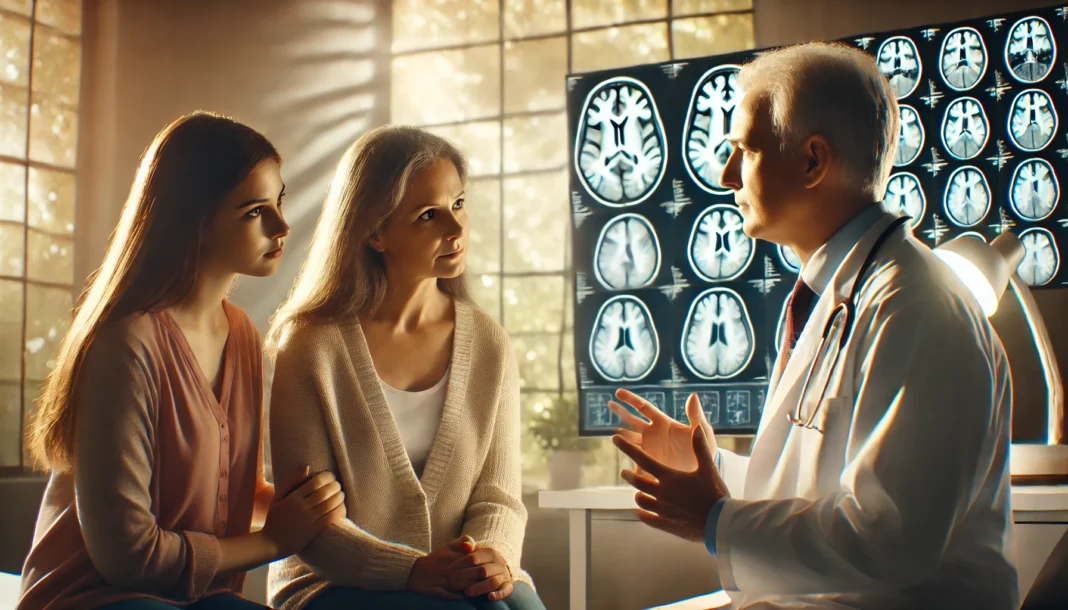Introduction
The human brain is a marvel of complexity, responsible for orchestrating every thought, movement, emotion, and memory. When its delicate architecture is compromised by injury or disease, the consequences can be profound and far-reaching. Cognitive brain damage refers to a disruption in the brain’s ability to process information, reason, remember, and make decisions. The symptoms can range from subtle changes in mood or attention to severe impairments that dramatically alter personality, independence, and quality of life. Understanding the signs of cognitive brain damage is essential not only for those directly affected but also for families, caregivers, and medical professionals seeking early intervention and appropriate treatment.
You may also like: How to Stop Cognitive Decline: Science-Backed Steps for Prevention and Brain Longevity
As modern neuroscience continues to uncover the mysteries of brain function, there is growing awareness about the intricate ways in which trauma, stroke, infection, neurodegeneration, and other conditions can manifest as cognitive impairments. These symptoms may appear suddenly, as in the case of a traumatic brain injury, or progress slowly over time, as seen in dementia or other chronic neurological disorders. Cognitive brain damage symptoms can be subtle at first—like struggling to find the right word or forgetting recent conversations—but often signal deeper, ongoing disruption within critical brain networks. Recognizing the difference between normal aging and pathological cognitive decline is essential for timely diagnosis and support.
In this article, we will explore the wide range of cognitive brain damage symptoms, what they mean in clinical and real-life contexts, the potential causes behind them, and most importantly, when to seek help. Drawing from current neuroscience research, expert opinion, and case studies, we’ll provide a comprehensive, empathetic, and scientifically sound look into one of the most critical health issues of our time. Whether you are concerned about your own cognitive health or that of someone you love, understanding the symptoms is the first step toward reclaiming control and accessing effective care.

Understanding Cognitive Brain Damage
Cognitive brain damage occurs when areas of the brain responsible for thinking, learning, memory, judgment, and emotional regulation are injured or deteriorate over time. These injuries can be the result of a variety of causes, including traumatic brain injuries (TBIs), strokes, infections such as encephalitis, neurodegenerative diseases like Alzheimer’s or Parkinson’s, exposure to toxins, and even chronic stress or substance abuse. While some forms of cognitive impairment may be reversible with prompt intervention, others are progressive and require long-term support.
The brain’s cognitive functions are distributed across several key regions. The frontal lobes control executive functions like planning and impulse control. The temporal lobes process memory and language. The parietal lobes handle spatial reasoning and sensory integration. Damage to any of these areas can result in specific cognitive deficits that influence how a person behaves, communicates, remembers, or makes decisions. Because each brain injury is unique, the presentation of cognitive brain damage symptoms can vary widely between individuals.
One important aspect of understanding cognitive brain damage is the concept of neuroplasticity. The brain has a remarkable ability to reorganize itself and compensate for lost function. This means that early diagnosis and targeted cognitive rehabilitation can lead to significant improvements in functioning—even in cases that initially appear severe. However, this potential for recovery depends heavily on how quickly symptoms are recognized and how soon support is initiated.

Common Cognitive Brain Damage Symptoms
Cognitive brain damage symptoms can affect virtually every aspect of mental functioning. These symptoms may develop suddenly after a specific incident such as a head injury, or they may emerge gradually due to progressive brain disorders. In many cases, family members or caregivers are the first to notice that something is wrong. The most commonly reported cognitive symptoms include memory problems, attention deficits, difficulty with language, impaired judgment, and changes in behavior or personality.
Memory loss is often the most noticeable symptom. Individuals may forget recent events, repeat themselves, misplace items frequently, or struggle to recall familiar names and faces. Short-term memory is especially vulnerable to disruption, and in some cases, people may be unaware that their memory is impaired. In progressive conditions like Alzheimer’s disease, memory loss typically worsens over time and is accompanied by confusion and disorientation.
Language difficulties are another key sign of cognitive brain damage. These may present as trouble finding the right words, speaking in fragmented or nonsensical sentences, or having difficulty understanding what others are saying. Some individuals may also exhibit a noticeable decline in reading and writing abilities. These symptoms can be frustrating and isolating, often leading to emotional distress and withdrawal from social situations.
Attention and concentration problems are also common. Individuals may find it hard to focus on tasks, become easily distracted, or struggle to follow conversations or instructions. This can interfere significantly with work performance and daily functioning. Decision-making and problem-solving abilities may also decline, resulting in poor judgment or risky behavior that was not previously characteristic.
Personality changes and emotional disturbances frequently accompany cognitive brain damage. A once calm and measured person may become irritable, aggressive, or emotionally volatile. Alternatively, someone who was previously outgoing may withdraw socially, become apathetic, or show signs of depression. These changes can be particularly difficult for loved ones to witness and are often mistaken for purely psychological issues rather than neurological ones.
Causes of Cognitive Brain Damage
The causes of cognitive brain damage are diverse, but all involve disruption to the brain’s normal structure or chemistry. One of the most well-known causes is traumatic brain injury, often resulting from accidents, falls, or sports injuries. In these cases, the brain may be bruised, bleeding, or swollen—conditions that impair its ability to function normally. Even mild concussions can lead to cognitive brain damage symptoms if they occur repeatedly or are not given adequate time to heal.
Stroke is another major cause of cognitive impairment. When blood flow to the brain is interrupted, neurons in the affected area can die within minutes. Depending on the location and extent of the stroke, individuals may experience difficulties with speech, memory, executive functioning, or spatial awareness. Strokes can also trigger secondary complications such as vascular dementia, further compounding cognitive deficits.
Neurodegenerative diseases are among the most serious and irreversible causes of cognitive brain damage. Conditions like Alzheimer’s disease, frontotemporal dementia, Huntington’s disease, and Parkinson’s disease progressively destroy neurons, leading to worsening symptoms over time. These conditions often have a genetic component and are characterized by complex interactions between proteins, inflammation, and metabolic dysfunction in the brain.
Infections such as meningitis or encephalitis can cause acute inflammation in the brain, leading to both temporary and long-lasting cognitive impairments. Similarly, prolonged exposure to environmental toxins—such as heavy metals, solvents, or certain drugs—can damage brain tissue and disrupt cognitive processing. Substance abuse, particularly of alcohol or stimulants, can also impair cognition through both direct neurotoxic effects and indirect mechanisms like nutritional deficiencies.
Autoimmune and metabolic disorders, including multiple sclerosis, lupus, and uncontrolled diabetes, can also impair cognitive function. In these cases, immune-mediated inflammation or chronic glucose dysregulation may damage brain structures or compromise blood-brain barrier integrity. Even psychiatric conditions like severe depression or schizophrenia can mimic or exacerbate cognitive brain damage symptoms, complicating diagnosis and treatment.

Diagnosing Cognitive Brain Damage
Diagnosing cognitive brain damage involves a careful combination of medical history, cognitive assessments, neuroimaging, and sometimes laboratory testing. Because symptoms often overlap with other neurological or psychiatric conditions, a thorough and multidisciplinary evaluation is essential for accurate diagnosis. In many cases, patients may be unaware of the extent of their cognitive difficulties, making input from family members or caregivers especially valuable.
The diagnostic process usually begins with a detailed interview covering medical history, recent events (such as head trauma or illness), current symptoms, and functional limitations. Clinicians may use standardized cognitive assessments like the Montreal Cognitive Assessment (MoCA), Mini-Mental State Examination (MMSE), or more advanced neuropsychological batteries to quantify deficits in memory, attention, language, and problem-solving. These tools help identify patterns of impairment consistent with specific types of cognitive brain damage.
Neuroimaging plays a key role in visualizing structural damage or functional abnormalities in the brain. Magnetic resonance imaging (MRI) and computed tomography (CT) scans can reveal lesions, tumors, swelling, or atrophy in specific brain regions. In some cases, functional imaging techniques such as positron emission tomography (PET) or single-photon emission computed tomography (SPECT) may be used to assess brain metabolism or blood flow abnormalities.
Laboratory tests may be ordered to rule out reversible causes of cognitive impairment, such as vitamin B12 deficiency, thyroid disorders, or infections. In younger individuals, genetic testing may be considered if hereditary neurodegenerative conditions are suspected. For elderly patients, screening for Alzheimer’s disease or other dementias often involves cerebrospinal fluid analysis or PET imaging to detect amyloid plaques or tau tangles.
It’s important to note that cognitive brain damage can sometimes be misdiagnosed, particularly when symptoms are mild or fluctuate. Conditions such as mild cognitive impairment (MCI) can be early indicators of progressive neurodegenerative diseases but are often dismissed as normal aging. An accurate diagnosis not only enables appropriate treatment but also provides clarity for families and allows individuals to plan for the future.
Impact on Daily Life and Relationships
Cognitive brain damage can profoundly alter a person’s ability to function independently and maintain relationships. Tasks that were once automatic—like managing finances, cooking, or navigating familiar places—can become confusing and overwhelming. As a result, many individuals with cognitive impairment require assistance with daily activities, which can be both emotionally and physically taxing for caregivers.
Communication difficulties are a major source of frustration and misunderstanding. When language is impaired, individuals may struggle to express their needs, understand instructions, or engage in meaningful conversation. This can lead to social isolation, depression, and a loss of self-esteem. Spouses, children, and close friends may feel helpless or distressed as they witness these changes, particularly if personality shifts make their loved one seem unfamiliar.
The impact of cognitive brain damage on employment is also significant. Many people are forced to leave their jobs or reduce their responsibilities due to cognitive deficits, which can lead to financial strain and a loss of purpose. For younger individuals, this sudden change in identity and role can be especially difficult to cope with. Employers and colleagues may not fully understand the nature of the symptoms, leading to miscommunication or discrimination.
Driving, one of the most valued forms of independence, is often affected. Individuals with cognitive deficits may have delayed reaction times, poor judgment, or trouble following directions—all of which can increase the risk of accidents. Evaluating driving ability in the context of cognitive impairment requires specialized assessments and often involves difficult conversations about safety and autonomy.
Despite these challenges, many people with cognitive brain damage find ways to adapt and thrive with the right support. Cognitive rehabilitation, occupational therapy, counseling, and assistive technology can greatly improve quality of life. Family education and support groups can also make a tremendous difference in helping caregivers cope and stay connected to their loved ones.
Treatment and Management Strategies
While not all forms of cognitive brain damage are curable, many symptoms can be managed or improved with appropriate treatment. The first step in effective management is identifying the underlying cause of the damage and addressing any reversible factors. For example, treating an infection, stopping exposure to a neurotoxin, or correcting a metabolic imbalance can halt or even reverse cognitive decline in some cases.
Cognitive rehabilitation is a cornerstone of treatment for many patients. This individualized form of therapy focuses on restoring function through targeted exercises and strategies. Techniques may include memory drills, problem-solving tasks, language exercises, and compensatory techniques like using visual reminders or organizational tools. Rehabilitation is often most effective when started early and tailored to the individual’s specific deficits.
Medication may also play a role in managing cognitive symptoms, especially in neurodegenerative conditions. Cholinesterase inhibitors such as donepezil or rivastigmine are commonly prescribed for Alzheimer’s disease, as they can help improve memory and attention in some patients. Other medications may target mood, sleep, or behavior changes associated with cognitive brain damage.
Lifestyle modifications can have a powerful impact on cognitive health. Regular physical activity, a nutrient-rich diet, adequate sleep, and stress management have all been shown to support brain function and may slow the progression of certain conditions. Mental stimulation through reading, puzzles, or learning new skills can also promote neuroplasticity and cognitive resilience.
Psychosocial support is essential for both patients and caregivers. Support groups, therapy, and caregiver training can reduce stress and provide practical strategies for managing daily challenges. For individuals with severe impairment, long-term care planning may include home modifications, in-home care, or transitioning to assisted living or memory care facilities.

When to Seek Help
Recognizing when to seek help for cognitive brain damage symptoms is crucial for early intervention and better outcomes. While occasional forgetfulness or mental fatigue is common, especially with stress or aging, persistent or worsening symptoms should not be ignored. If you or a loved one is experiencing changes in memory, language, attention, judgment, or personality that interfere with daily life, it’s important to consult a healthcare provider.
Red flags that warrant immediate attention include sudden confusion, disorientation, speech difficulties, or loss of consciousness—especially if these follow a head injury, stroke, or infection. These symptoms may indicate an acute neurological emergency requiring prompt evaluation and treatment. Even if symptoms are more subtle or progress slowly, early assessment can uncover underlying conditions that respond better to treatment when caught early.
Family members often play a vital role in seeking help, particularly when the individual affected lacks awareness of their cognitive changes. Trusting your instincts and advocating for a comprehensive evaluation can lead to life-changing interventions. It’s also helpful to document symptoms, keep a journal of changes, and share specific examples with healthcare professionals to support the diagnostic process.
Early diagnosis not only enables access to medical treatment but also opens the door to resources and support networks. With the right care, individuals with cognitive brain damage can maintain dignity, independence, and quality of life for as long as possible.
Frequently Asked Questions
1. What are the early warning signs of cognitive brain damage?
Early warning signs of cognitive brain damage may include subtle memory lapses, such as forgetting names or appointments, increased difficulty concentrating, or struggling to find the right words in conversation. Emotional changes like irritability, anxiety, or depression can also appear before more noticeable cognitive decline. Many people may overlook these early symptoms or attribute them to normal aging or stress, but they often signal underlying neurological disruption. Recognizing these signs early can lead to better outcomes through prompt intervention. If symptoms persist or worsen, it is essential to seek a comprehensive cognitive evaluation.
2. Can cognitive brain damage symptoms improve over time?
Yes, cognitive brain damage symptoms can improve over time, especially when the damage is mild to moderate and receives timely treatment. The brain’s natural ability to adapt, known as neuroplasticity, allows some individuals to regain lost functions through therapy and lifestyle changes. Cognitive rehabilitation, medication, and supportive care can all contribute to recovery or stabilization. However, improvement depends on the underlying cause—some progressive diseases like Alzheimer’s may worsen despite treatment. Early diagnosis and intervention increase the chances of recovery and help maintain independence longer.
3. Is it possible for cognitive brain damage to be misdiagnosed?
Cognitive brain damage can sometimes be misdiagnosed, particularly when symptoms overlap with psychiatric conditions such as depression or anxiety. Mild cognitive symptoms may also be mistaken for normal aging, while sudden changes might be confused with delirium or acute stress responses. Accurate diagnosis requires thorough neurological evaluation, including imaging, cognitive testing, and medical history. Misdiagnosis can delay treatment and worsen outcomes, so it’s critical to advocate for detailed assessments if symptoms are persistent or atypical. Consulting with neurologists or cognitive specialists can provide clarity and more accurate diagnosis.
4. How does cognitive brain damage affect emotional health?
Cognitive brain damage often has a profound impact on emotional well-being. Individuals may experience depression, anxiety, mood swings, or emotional blunting. These emotional shifts can stem from both direct neurological damage and the frustration of losing cognitive abilities. Social withdrawal and isolation are common, particularly if the person struggles to communicate effectively. Family members may notice uncharacteristic behavior, irritability, or emotional volatility. Addressing emotional symptoms with therapy, medication, and support groups is an essential part of holistic treatment, helping individuals cope with the psychological impact of cognitive decline.
5. What is the relationship between stroke and cognitive brain damage?
Stroke is a leading cause of cognitive brain damage. When blood supply to part of the brain is interrupted, neurons in that region may die, leading to lasting cognitive deficits. Depending on the area affected, stroke survivors may experience problems with memory, attention, language, or executive function. Some individuals develop vascular dementia, a type of cognitive impairment directly related to impaired blood flow. Rehabilitation after stroke is crucial in restoring lost abilities and preventing further decline. Early intervention, physical therapy, and cognitive exercises can significantly aid recovery.
6. Are there different types of cognitive brain damage?
Yes, cognitive brain damage can be categorized into several types depending on its cause and location. Traumatic brain injury, stroke-related damage, neurodegenerative diseases, infections, and toxic exposures can each lead to distinct cognitive symptoms. For example, frontal lobe damage often results in impaired judgment and behavioral changes, while temporal lobe damage may primarily affect memory and language. Some individuals experience diffuse damage across multiple regions, leading to complex, overlapping impairments. Understanding the type of damage helps clinicians tailor treatment and anticipate the progression of symptoms.
7. How is cognitive rehabilitation used to treat brain damage symptoms?
Cognitive rehabilitation involves structured therapy designed to help individuals regain or compensate for lost cognitive abilities. Therapists work with patients to improve memory, attention, problem-solving, and communication through targeted exercises and practical strategies. Techniques may include mnemonic devices, organizational tools, or repetition-based tasks to reinforce learning. Cognitive rehabilitation is often part of a multidisciplinary approach and can be delivered in outpatient clinics, rehabilitation centers, or even at home. Personalized rehabilitation plans based on the individual’s unique deficits and strengths tend to be most effective.
8. Can lifestyle changes help prevent or reduce cognitive brain damage symptoms?
Yes, lifestyle changes can significantly reduce the risk of cognitive brain damage and slow the progression of symptoms. Engaging in regular physical exercise, following a balanced diet rich in brain-supportive nutrients, getting sufficient sleep, and managing chronic health conditions like hypertension and diabetes can protect brain health. Mental stimulation through learning, reading, and social interaction supports cognitive resilience. Avoiding smoking, excessive alcohol use, and exposure to environmental toxins further reduces risk. These proactive measures are particularly beneficial for individuals at high risk due to family history or past injuries.
9. What role does memory loss play in cognitive brain damage?
Memory loss is one of the hallmark symptoms of cognitive brain damage and often serves as a key indicator for diagnosis. It may affect short-term, long-term, or working memory depending on the brain region involved. In early stages, individuals may forget recent conversations or misplace items. As the damage progresses, they may struggle with autobiographical memories or lose the ability to learn new information. Memory impairment can be deeply distressing and isolating, underscoring the importance of early support, cognitive therapies, and memory aids to preserve function and independence.
10. When should someone with cognitive brain damage symptoms stop driving?
Driving requires complex coordination of cognitive skills, including attention, memory, visual processing, and decision-making. Individuals with cognitive brain damage symptoms may exhibit delayed reaction times, confusion, or poor judgment, all of which increase the risk of accidents. A person should stop driving when symptoms interfere with their ability to drive safely or when advised by a healthcare professional after a formal driving assessment. Families often face difficult decisions regarding driving cessation, but prioritizing safety is critical. Alternative transportation options and mobility services can help maintain independence.

Conclusion
Cognitive brain damage symptoms are more than just moments of forgetfulness or mental lapses—they are indicators of deeper neurological disruption that can impact every facet of life, from communication and independence to emotional health and relationships. Recognizing these symptoms early and
understanding their significance is essential in seeking timely help and accessing effective treatment options. While the causes of cognitive brain damage are diverse—from traumatic injuries and strokes to neurodegenerative diseases and environmental toxins—the impact on an individual’s quality of life is universally profound.
Fortunately, advancements in neuroscience, rehabilitation, and support services offer hope for those affected. Through early diagnosis, tailored cognitive therapy, appropriate medical intervention, and lifestyle adjustments, many individuals can regain function, find emotional stability, and maintain their independence. Families, caregivers, and healthcare providers all play vital roles in this journey, offering encouragement, structure, and compassion. The road may be challenging, but with the right guidance, the brain’s resilience and capacity for healing can lead to meaningful recovery.
If you or someone you love is experiencing signs of cognitive brain damage, don’t wait. Seek help, explore your options, and take that critical first step toward a better, more empowered future.
Was this article helpful? Don’t let it stop with you. Share it right now with someone who needs to see it—whether it’s a friend, a colleague, or your whole network. And if staying ahead on this topic matters to you, subscribe to this publication for the most up-to-date information. You’ll get the latest insights delivered straight to you—no searching, no missing out.



